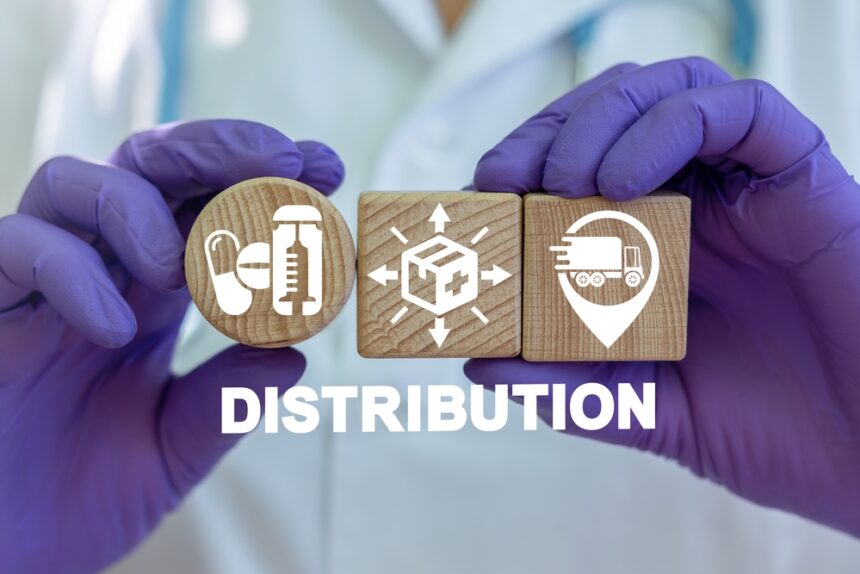We have talked about a number of things that pharmaceutical companies can do to improve efficiency, such as investing in outsourcing. However, there are even more important things that the industry must focus on.
Proper transportation of medication is a crucial aspect of the pharmaceutical industry. It ensures that medications maintain their efficacy and integrity throughout the supply chain, ultimately benefiting patients.
Unfortunately, incorrect transportation practices can have harmful consequences for both the patient and the manufacturer. One of the trends facing the pharmaceutical industry is that more drug companies are making major transportation errors. In this article, we will explore why it is essential to prioritize the correct transportation of medication and the detrimental effects of neglecting pharmaceutical logistics.
The Significance of Proper Medication Transportation
Pharma’s Almanac discussed some of the reasons that proper transportation is so important in the pharmaceutical industry. Maintaining the quality and efficacy of medications during transportation is of utmost importance. Medications are sensitive to environmental factors such as temperature, humidity, and light exposure.
Any deviations from the recommended conditions can compromise the effectiveness of the medication and potentially harm patients. Adhering to transportation regulations and guidelines is crucial to ensure that medications reach their destination in optimal condition.
Fortunately, experts from McKinsey and other companies have talked about some of the ways that pharmaceutical companies can improve transportation. We will discuss some of them in this post.
Consequences for the Patient
Incorrect transportation of medication can have severe consequences for patients. Exposure to unfavorable conditions, such as extreme temperatures or excessive humidity, can lead to the degradation of active ingredients. As a result, the medication may not deliver the intended therapeutic effect, jeopardizing the patient’s health and well-being. Additionally, improper transportation practices increase the risk of medication spoilage, leading to potential adverse reactions and further harm to the patient.
Consequences for the Manufacturer
Pharmaceutical manufacturers also bear the brunt of incorrect medication transportation. Compromised medication quality due to transportation issues can severely damage the manufacturer’s reputation and credibility. Product recalls, financial losses from wasted inventory, and potential legal and regulatory consequences are all significant concerns. Maintaining high standards in pharmaceutical logistics is vital for manufacturers to ensure the delivery of safe and effective medications to patients.
Factors Affecting Medication Transportation
Several factors contribute to the proper transportation of medication. Temperature sensitivity is a critical consideration, as many medications require specific temperature ranges to maintain their stability and potency. Proper packaging and handling of medications also play a crucial role in preventing damage during transportation. Be it dental packaging design or medicine packaging, it should always go through all steps of making sure the packaging is secure. Additionally, managing transportation logistics, especially in the context of cold chain management, is essential to ensure the integrity of medications throughout the supply chain.
Addressing the Issue: Best Practices for Medication Transportation
To mitigate the harmful effects of incorrect medication transportation, adherence to best practices is vital. Compliance with transportation regulations and guidelines is a fundamental requirement. Proper packaging and labeling of medications for transportation, including insulation and temperature monitoring devices, help protect against environmental fluctuations. Thorough training and education for transportation personnel on medication handling protocols further ensure the safe transportation of pharmaceutical products.
Collaboration and Communication
Effective collaboration between pharmaceutical manufacturers, distributors, and transportation providers is crucial to improving medication transportation. Clear communication channels must be established to relay critical information and address potential risks. The implementation of technology, such as real-time monitoring systems, can provide valuable insights and enable prompt intervention in case of transportation deviations. Streamlining pharmaceutical logistics requires a collective effort to ensure patient safety and medication quality.
The Future of Medication Transportation
Advancements in temperature monitoring technology and data analysis are revolutionizing pharmaceutical logistics. Real-time monitoring and analytics can detect and respond to temperature excursions promptly, minimizing the risk of medication damage. Blockchain technology shows promise in enhancing medication traceability and ensuring transparency throughout the supply chain. As the industry evolves, maintaining a strong focus on patient safety and medication quality during transportation will continue to be paramount.
Conclusion
Incorrect transportation of medication poses significant risks to both patients and pharmaceutical manufacturers. By prioritizing proper pharmaceutical logistics, we can safeguard the efficacy and integrity of medications throughout the supply chain. Adhering to transportation regulations, implementing best practices, fostering collaboration, and embracing technological advancements are crucial steps toward ensuring the safe and effective delivery of medications to patients.

